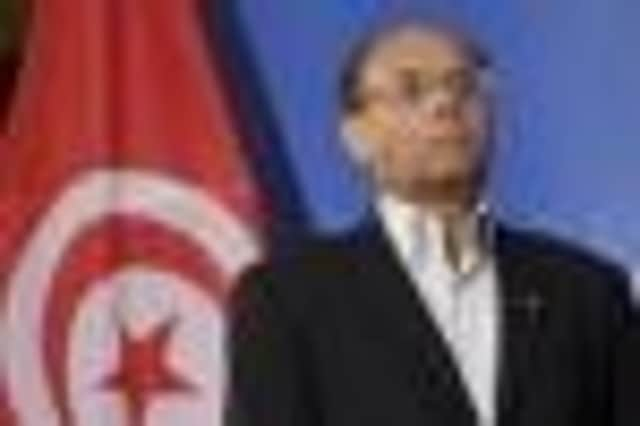More turbulence for Tunisia as CPR pulls ministers


Mr Belaid’s killing on Wednesday has thrown the government and the country into turmoil, widening rifts between the dominant Islamist Ennahda party and its secular foes.
“We have been saying for a week that if the foreign and justice ministers were not changed, we would withdraw from the government,” Samir Ben Amor, an official of Mr Marzouki’s Congress for the Republic Party (CPR), said yesterday.
Advertisement
Hide AdAdvertisement
Hide AdThe CPR has criticised the performance of the two ministers, one of whom, foreign minister Rafik Abdessalem, is the son-in-law of Ennahda party leader Rachid Ghannouchi.
Mr Ben Amor said the CPR’s withdrawal was unconnected to prime minister Hamadi Jebali’s decision, announced after Mr Belaid was killed, to form a non-partisan government of technocrats to run the country until elections can be held later in the year.
Senior politicians in Ennahda, as well as in its two non-Islamist coalition partners, had criticised Mr Jebali’s proposal, saying he had failed to consult them first.
Mr Jebali said on Saturday he would unveil his new cabinet this week, but would resign if political parties did not back it.
A senior Ennahda official, who asked not to be named, said the National Constituent Assembly would have the final say, but added: “We see that it will be possible to form a government of technocrats that includes political parties.”
Mr Ben Amor said Mr Marzouki’s CPR would formally submit the resignation of its three ministers to Mr Jebali today.
Political analyst Youssef Ouslati said the party was “trying to jump out of a sinking ship”, but that its decision had no great weight because Mr Jebali was now the central player.
He said that if political uncertainty continued, “the street will be the crucial element”.
Advertisement
Hide AdAdvertisement
Hide AdThe CPR’s departure is the first major shake-up in the government set up in December 2011 after an election for a National Constituent Assembly to draft a new constitution.
The CPR came a distant second in the election, winning 29 of the assembly’s 217 seats to Ennahda’s 89, but Mr Marzouki was elected interim president by the assembly in a show of unity and his party entered a coalition government led by Ennahda.
Mr Marzouki had opposed former president Zine al-Abidine Ben Ali from exile until a popular uprising swept the long serving Tunisian leader from power in January 2011.
Since then Islamists and their opponents have tussled over the role of Islam in politics, society and the constitution, while economic grievances that helped drive the revolt against Mr Ben Ali have gone largely unaddressed.